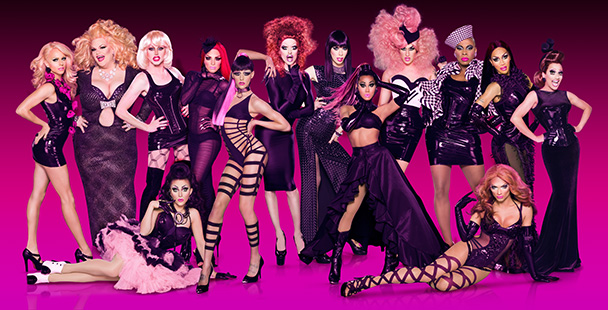
What does being a Drag Queen mean?
In the most basic understanding a drag queen is a man who dresses up as a woman in order to perform. These performances have historically taken place in gay clubs but with the advent of RuPaul's Drag Race, and its spin off show, Drag U, drag queen culture is becoming increasingly mainstream. There is not a lot of academic work done on drag queens so my primary source for imagining drag as more than performance is "Drag Queens at the 801 Cabaret", which is a study by Leila Rupp and Verta Taylor about the drag queens who perform at the 801 in the Keys and the audience that comes to watch them perform. Through this book Rupp and Taylor argue that drag performances are "political events in which identity is used to contest conventional thinking about gender and sexuality" (Rupp & Taylor 2). They further argue that drag shows are able to be read for "serious political purposes" (Rupp & Taylor 3) because they are entertainment.
It is important to note that there is not one "type" of drag queen. For the drag community being a drag queen is really just a blanket term, much like the term "music" applies to all genres. In drag you have your "camp" queens, your "pageant" queens, your "spooky" queens, your "comedy" queens, etc. Drag queens are primarily gay males although the community does not exclude men who identity as heterosexual. And while their gender identification is fluid drag queens do not typically desire to be women, although there have been contestants on past seasons of RuPaul's Drag Race for whom drag has allowed them to transition into a transsexual identification. Furthermore, not all drag queens perform in drag because it is their passion or because they enjoy doing it, some "came to drag as part of their work and continue to see it as primarily as a job" (Rupp & Taylor 40). Finally the pro-nouns that are used to talk about drag queens and that drag queens themselves use are often very fluid. Rupp and Taylor note in their study that while, "The vast majority of the time, the girls call each other by their drag names and use the pronouns 'she' and 'her'" (Rupp & Taylor 4), this is not always true. They further make note that there is "almost no consistency" in the use of pro-nouns between "appearance and linguistic gender" (Rupp & Taylor 4). For the purposes of this analysis I will use the pro-noun "she" when referring to a specific queen as on the show the contestants are almost always referred to by their drag names, even when not in drag, and not by their "real" names.